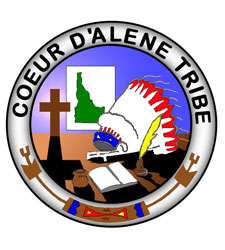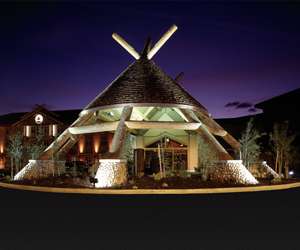Coeur d’Alene Tribe Fires Back at State of Idaho
Earlier this month, Idaho’s Coeur d’Alene Tribe opened a poker room at its casino in Worley, a town in northwest Idaho near the Washington border. That same day, though, the office of Governor C.L. “Butch” Otter announced that he and Attorney General Lawrence Wasden filed a lawsuit against the tribe in U.S. District Court, seeking to shut down the poker room before it even got started. Last Friday, the tribe struck back, submitting a response in the same U.S. District Court, making the argument that the state is totally off-base in its legal action
When it originally filed the lawsuit, the state issued a press release explaining the problem it had with the poker room:
Under the federal Indian Gaming Regulatory Act (IGRA), Indian tribes are authorized only to offer those types of games that are legal within the state where they are operating. The Idaho Constitution prohibits poker, classified under IGRA as a Class III game. That restriction is detailed in the Coeur d’Alene Tribe’s gaming compact with the State, which is required for operation of a tribal casino under IGRA.
IGRA stands for the Indian Gaming Regulatory Act of 1988, which was created to establish the legislative basis for tribal gaming in the United States and protect the economic interest of the tribes. As is evident above, the big issue is what class of game poker falls under. Class I, as detailed in IGRA, represents traditional Indian gaming (these games are often ceremonial) and “social games solely for prizes of minimal value.” Class II is bingo and card games either explicitly allowed by law or “are not explicitly prohibited by the laws of the State and are played at any location in the State, but only if such card games are played in conformity with those laws and regulations (if any) of the State regarding hours or periods of operation of such card games or limitations on wagers or pot sizes in such card games.” Class III, which the state believes includes poker, is anything not encompassed by Classes I and II.
Tribes, for the most part, are free to offer Class I and II games, but there are specific rules when it comes to offering Class III games. The game must be legal in the state where it will be operated, the tribe and state must have a compact in place in which an agreement to allow the tribe to offer the game is established, and the tribe must have an approved gaming ordinance.
On April 15th, 1992, the Coeur d’Alene tribe asked the state to enter into negotiations for a Class III compact, but nothing was agreed upon at that time. Instead, later that year, the state changed the existing gambling laws, explicitly prohibiting poker and many other games that would have fallen into the Class III category. Not at all happy with this, the tribe signed a partial compact with the state, leaving out anything having to do with Class III gaming.
And now the state of Idaho wants the tribe to shut down its poker room.
In the 52-page response submitted in U.S. District Court, argued, amongst other things, that poker is clearly a Class II game, saying, “…as long as the State permits a single person, organization or entity to operate a game at any location in the State, whether for charity purposes or otherwise, the Tribe is entitled to operate such games in its gaming facility.”
On page 16 of the response, the tribe points out that the state Attorney General does, in fact, recognize an exception in the law where Texas Hold’em can be used in “merchant promotional contests.” “The fact that Texas Hold’em is permitted as a promotional contest is sufficient, in and of itself, to establish that the State permits the game in some forms. Thus, Texas Hold’em is available to the Tribe for purposes of federal law as a Class II game,” it reads.
On the following page, the tribe gives additional examples of poker tournaments being held around the state, even ones with buy-ins and prizes for the winners. Again, this illustrates that “Texas Hold’em is both permitted and widely played in the State of Idaho.”
The other main argument the tribe makes is that Idaho’s gambling law includes a carveout for “bona fide contests of skill…in which awards are made only to entrants…” It then goes on to cite a number of papers and opinions of poker being a skill game, including an instance in which “…the Magistrate Division of the District Court for the Fourth Judicial District of Idaho recently stated that the evidence showing Texas Hold’em to be a contest of skill was ‘considerable and uncontroverted.’”
Poker is also compared to golf, a game everybody considers a game of skill, but one in which luck is a factor. Luck comes into play in golf in instances such as a bad bounce or shifting weather conditions that give an advantage to one player over another.
The Coeur d’Alene casino, despite the legal action taken against it by the state, is still operating its poker room. It advertises daily $35 tournaments at 11:00am, $60 tag-team tournaments on Mondays at 6:30pm, and $35 re-buy tournaments on Tuesdays, Wednesdays, Thursdays, and Sundays at 6:30pm.





















COMMENTS